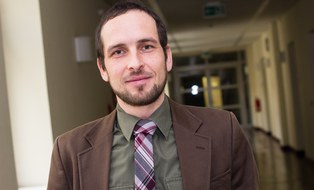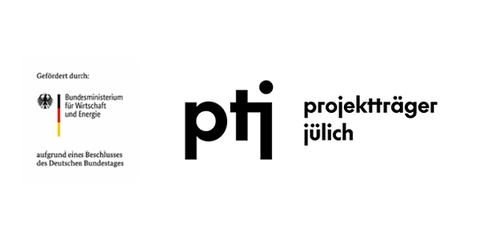16.10.2025
Projektpartner aus Forschung und Industrie entwickeln im öffentlich geförderten Projekt „ProEly“ Kunststoffzellrahmen für alkalische Elektrolyseure

Das Konsortium von „ProEly“: Vertreter:innen aus Industrie und Forschung.
- Kostenreduzierung und Skalierung von Elektrolyseur-Komponenten als zentraler Meilenstein zur großserienfähigen Produktion von grünem Wasserstoff
- Zukunftsweisendes Zellrahmenkonzept für ökonomischere und ökologisch nachhaltigere Elektrolyseure
- Entwicklung von innovativen Elastomeren zum langzeitbeständigen Einsatz im basischen KOH-Elektrolyt
Wasserstoff ist ein zentraler Energieträger für die Klimaneutralität, da er per Elektrolyse aus erneuerbaren Energien hergestellt werden kann und zur Dekarbonisierung aller Energiesektoren beiträgt. Im Rahmen der Nationalen Wasserstoffstrategie (NWS) der Bundesregierung wird als Ziel für die Elektrolysekapazität 10 GW bis 2030 gefordert. Für eine großskalige Produktion sind neben der Skalierung der Elektrolysestacks auch automatisierte Fertigungsprozesse entscheidend. Besonders der Zellrahmen, bislang meist aus Metall gefertigt, bietet großes Potenzial für eine Substitution durch spritzgießfähige Kunststoffe, da für jedes Elektrolyse-Megawatt 200-300 Zellrahmen verbaut werden müssen (siehe Abb. Elektrolysestack-Prototyp mit 200 Zellrahmen).
Übergeordnetes Ziel des Vorhabens ist daher die Entwicklung einer neuartigen kreislaufgerechten Kunststoffbauweise und der zugehörigen skalierungsfähigen Prozesstechnologie auf Basis des Spritzgießens zur effizienten Großserienfertigung von thermoplastischen Zellrahmen für die alkalische Wasserelektrolyse. Die zu entwickelnden innovativen Komponenten sollen sowohl ökologisch als auch ökonomisch nachhaltig sein und zur Produktion von grünem Wasserstoff beitragen. Zur Erreichung der im Vorhaben ProEly gesetzten Zielstellung kooperiert ein breit aufgestelltes Konsortium aus Forschungseinrichtungen (Zentrum für Sonnenenergie- und Wasserstoff-Forschung Baden-Württemberg (ZSW), Institut für Leichtbau und Kunststofftechnik der TU Dresden) und Partnerunternehmen (ElringKlinger AG, AUMO GmbH, Symate GmbH, MOCOM Compounds GmbH & Co. KG). Das Interesse an einer industriellen Umsetzung der neuen Technologie wird durch Beteiligung des Elektrolyseurherstellers Stargate als assoziierter Partner unterstrichen.

Elektrolysestack-Prototyp – Testbetrieb am ZSW Stuttgart.
Im Zuge der Hochskalierung der Wasserstofferzeugung werden die Vorteile von Kunststoffzellrahmen mehr als deutlich: Neben der endkonturnahen Fertigung ergeben sich weitere Vorteile im Bereich Zykluszeit, Gewicht, Funktionsintegration sowie der kreislaufgerechten Herstellung. Für den Einsatz in alkalischen Elektrolyseuren werden Hochleistungsthermoplaste mit ausreichender Widerstandsfähigkeit gegen das basische Elektrolyt benötigt. Um den Materialbedarf dieser kostenintensiven Thermoplaste auf ein Minimum zu reduzieren, wird ein bei ElringKlinger entwickelter Zwei-Komponenten-Ansatz verfolgt. Dieser erlaubt es, den Hochleistungsthermoplast nur an den medienführenden Bereichen einzusetzen. Der strukturelle Teil des Zellrahmens, der einem Betriebsdruck von über 30 bar standhalten muss, wird hingegen mit einem kostengünstigen Standardkunststoff gefertigt. Die offenen konstruktiven und fertigungsspezifischen Fragestellungen in Abhängigkeit der Materialpaarungen zusammen mit der Entwicklung geeigneter Elastomermaterialien und Dichtungskonzepte sind Gegenstand des Vorhabens. Durch innovative Verfahren soll zukünftig eine automatisierte Fertigung im Großserienmaßstab inklusive einer digitalen, KI-basierten Qualitätssicherung ermöglicht werden. Mit den entwickelten Lösungen wird beim Projektpartner ZSW ein Elektrolyse-Stack als Proof-of-Concept aufgebaut und im Druckbetrieb getestet. Der Nachweis einer ressourceneffizienten Kreislauffähigkeit fördert Nachhaltigkeit und Resilienz der Technologie. Das Projekt „ProEly“ trägt so wesentlich zur Transformation des Energiesektors bei.
Die Förderung erstreckt sich über den Zeitraum vom 01.08.2025 bis zum 31.07.2028, die Fördersumme beträgt 3,6 Mio Euro. Das Konsortium dankt dem Bundesministerium für Wirtschaft und Energie (BMWE) sowie dem Projektträger Jülich (PtJ) herzlich für die Förderung des Projekts im Rahmen des 8. Energieforschungsprogramms.
Ansprechpartner:
 © Tanja Kirsten
© Tanja Kirsten
Dr.-Ing. habil. Robert Kupfer
Leiter Neutralleichtbau
Eine verschlüsselte E-Mail über das SecureMail-Portal versenden (nur für TUD-externe Personen).
Institut für Leichtbau und Kunststofftechnik
Besucheradresse:
DÜR, Etage 2, Raum 264 Holbeinstr. 3
01307 Dresden
Deutschland

